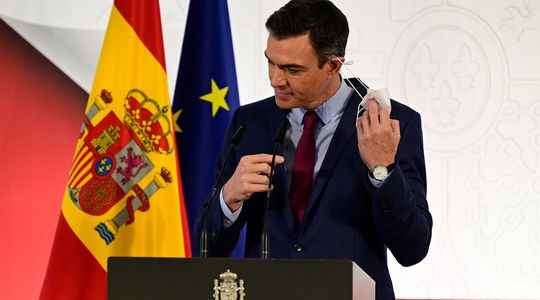A huge eavesdropping scandal shakes Spanish democracy and puts the country’s leaders in the hot seat. In mid-April, around sixty leaders of the Catalan independence movement learned that their mobile phones had been infected by the Israeli software Pegasus from the company NSO.
According to an investigation by the Citizen Lab of the Canadian University of Toronto, all these personalities, including Pere Aragonès, current president of Catalonia, and his predecessor Carles Puigdemont (on the run in Belgium), were spied on between 2017 and 2020, at following the region’s illegal secession attempt. Immediately, the victims demanded the opening of a parliamentary inquiry and accused the government of socialist Pedro Sanchez of being the sponsor of these wiretappings.
Questioned in the Chamber of Deputies, the Minister of Defense, Margarita Robles, threw oil on the fire by suggesting that this was indeed the case. “What should a state, a government, do when someone violates the Constitution, declares independence, blocks the public way and commits disturbances of public order?” she said in an allusion to the coup of force aborted in the fall of 2017 having led, at the time, to the flight abroad of a handful of separatists and the imprisonment of many others.
The timing of the government reaction is troubling
On May 2, two weeks after these embarrassing revelations, a dramatic turn of events: Moncloa, the executive headquarters in Madrid, announced that Margarita Robles, but also Pedro Sanchez himself, had also been wiretapped. In the spring of 2021, when a diplomatic crisis erupted between Spain and Morocco over the migrants arriving en masse in the enclave of Ceuta, incredible amounts of data contained in the mobile phones of the minister and the president of the government would have been siphoned off by Pegasus.
For the executive, it is “an illicit and external attack”. A way of saying that this espionage was the work of a foreign state, in this case Morocco. For the Catalan separatists, the Sanchez government poses as a victim to avoid accountability. The timing of the government’s reaction is indeed troubling: the tapping of the chief executive had in fact been known to the person concerned for almost a year.
The Iberian press wonders: Why did Pedro Sanchez suddenly decide to communicate on the subject, when all the other European leaders who have been targeted by Pegasus, from Emmanuel Macron to Angela Merkel, passing by Boris Johnson, have so far refrained from doing so?
Heads might roll
Why, moreover, has Madrid decided to take the matter to court, something no other capital has done, at the risk of having to reveal how Spain’s cybersecurity teams track computer viruses?
Heads could fall, starting with that of Paz Esteban, patron of the intelligence services who admitted, Thursday, May 5, having ordered the wiretapping of certain Catalan leaders, “with the prior green light of justice”.
In the meantime, the power pitches dangerously. Pere Aragonès threatens to withdraw his support for the Sanchez government. However, without the votes of the deputies of his party, the Republican Left of Catalonia (ERC), the executive would lose the majority in the chamber. On April 28, the Catalan separatists gave a taste of the showdown with Madrid, by voting against the government’s anti-inflation plan. The text was finally adopted on the wire, thanks to the support of the Basque separatists.
Friday, May 6, Pedro Sanchez and Pere Aragonès crossed paths in Barcelona, on the occasion of the annual meeting of the Cercle de l’Economie. “The hour is serious”, declared the president of Catalonia to his visitor.
